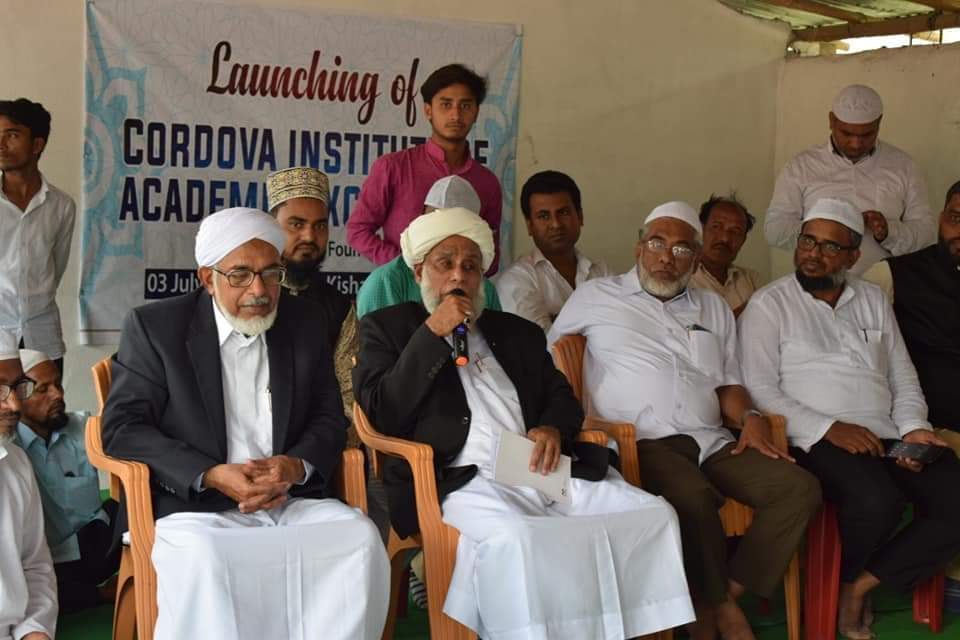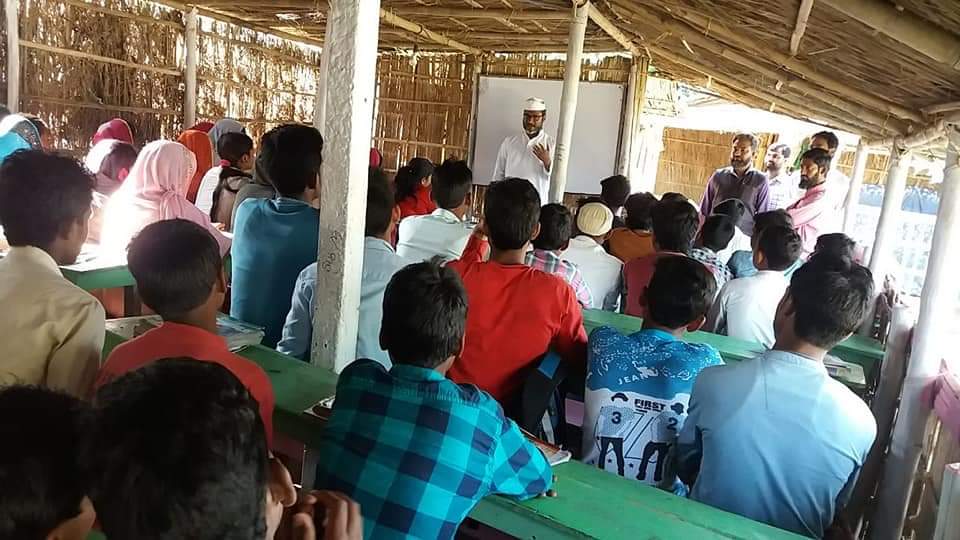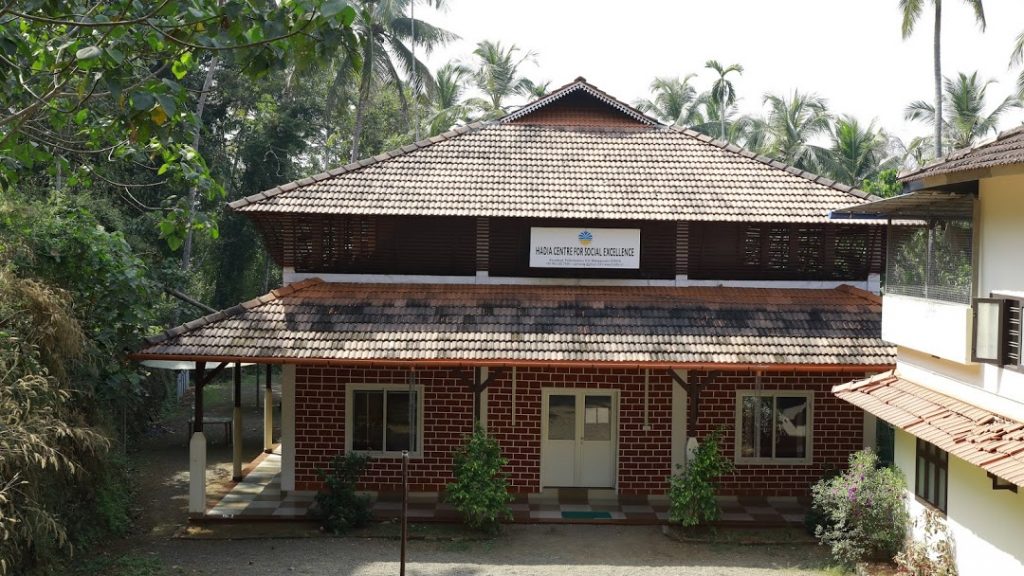Prayan Foundation vows steps for Madrasa education reforms in NEP 2019

By Shafeeq Alingal for TwoCircles.net
With the draft of National Education Policy 2019 being released, suggestions are being submitted and complaints are mounting alleging that the Hindutva fold is attempting to put its stamp on the policy, Delhi based Prayan Foundation has proposed certain reforms regarding Madrasa education in the country. Prayan Foundation, the NGO that focuses on helping marginalized sectors develop and avail benefits of government schemes in the educational sector, has submitted a detailed proposal to the Ministry of Human Resource Development (MHRD).
The proposal that was drafted in coordination with Malappuram based NGO ‘Centre for Social Excellence (CSE)’, cites concerns regarding some of the concepts and recommendations mentioned in the draft and says it seems to be highly impressive and decisive in bettering the educational scenario of our country.
NEP 2019’s clause ‘Strengthening madrasas, maktabs, and other traditional or religious schools, and modernizing their curriculum’ (P6.5.2) says “existing traditional or religious schools, such as madrasas, maktabs, gurukuls, pathshala, and religious schools from the Hindu, Sikh, Jain, Buddhist and other traditions may be encouraged to preserve their traditions and pedagogical styles, but at the same time must be supported to also integrate the subject and learning areas prescribed by the National Curricular Framework into their curricula in order to reduce and eventually eliminate the underrepresentation of children from these schools in higher education.”
[caption id="attachment_432886" align="alignnone" width="960"] One of the Welfare Coaching Centres run by Prayan Foundation at Kajhilamani in Kishanganj district of Bihar[/caption]
One of the Welfare Coaching Centres run by Prayan Foundation at Kajhilamani in Kishanganj district of Bihar[/caption]
Regarding the reforms of Maktabs, Prayan Foundation suggests “the policy should (a) make it mandatory that no Maktab should function in the regular school time or in a way preventing the students from attending any of the public or private school. It should ask the guardians and teachers of Maktab to ensure that students who attend their maktabs are attending the general school regularly and attain the minimum mandatory attendance, and encourage community organizations to utilize the Maktabs that run in the evening or morning shifts as a platform to spread awareness and motivation among the leadership, parents and the students to attain a quality education as envisaged in the Right to Education (RTE) Act.
Maktabs are aimed at imparting basic and compulsory religious education including the reading of Quran to every Muslim boy and girl in the community to help them live as a Muslim whatever career he takes in life. Madrasa, Jamia or Islamic Colleges are producing imams and khateebs (masjid leaders) Aalims (scholars of religion) and teachers / Muallims (teachers of maktabs or Islamic Colleges).
“As mentioned in the NEP, existing traditional or religious schools may be encouraged to preserve their traditions and follow their revised curriculum and syllabus. It should be allowed to do the job of religious leadership other than transforming its aims and objectives towards producing some skilled job-seekers. However, madrasas should simultaneously ensure that their students learn all the mandatory subjects up to secondary schooling like Maths, English, Local Language, Science, and Social Science, and achieve the Minimum Learning Levels that are proportionate to their age,” the Prayan Foundation proposal says.
The proposal suggests NEP should ask the madrasas to admit students for residential courses only at the age of ten or above after completing their five-year schooling at the local schools to preserve the traditional learning and to achieve the MLL of the general schooling - practical and fruitful. “It should mention that the community can utilize the Maktab system for imparting basic religious learning of 5-10 year old students along with local primary schooling, rather than sending the small children to residential madrasas and make it mandatory on Madrasa management to ensure that proper facilities and systems are in place for quality teaching and learning process in their respective institutions and suggest that madrasas should register their students for the proper general schooling under any of the official systems like NIOS, SIOS, State School Educational Boards, etc with the flexibility of maintaining their proper attendance and learning in their respective institutions. And all registered Madrasa students should attend and be able to qualify all the public or graduating exams run under the respective boards,” the proposal further recommends.
The proposal, Prayan Foundation director Dr.Zubair Hudawi said, was made after compiling suggestions from field experts across the country. “Meetings were convened and contemplation sessions were held ahead of drafting a proposal,” he said.
Regarding the clause ‘supply-side interventions to incentivize Muslims and other educationally underrepresented minorities to complete school education’ (P6.5.1), the foundation suggests NEP devise plans for actual implement the proposals. “As far as the Muslim community is concerned, they failed to implement even the post-Sachar suggestions. Dropout rates are astonishingly high among the community and above 60% of the students drop out of the schools by class VIII in most of the Muslim populated panchayats and districts except Kerala,” the suggestions read.
The NEP clause (P6.5.1) comes up with multiple steps to ensure qualitative primary-to-higher secondary education for all children with special focus on backward communities like Muslims, and it also proposes special projects like Special Education Zone.
“As far as Urdu Schools are concerned, the teaching of the local language and the English language should be made compulsory, so that its students can easily join regular general schools after primary levels when they don’t get Urdu higher schools locally,” Prayan Foundation proposal adds.
The recommendations by Prayan Foundation also lay stress on including the Arabic language to the list of languages to be offered to interested students during secondary school. NEP says “a choice of foreign languages like French German Spanish Chinese Japanese would be offered and available to interested students to choose as electives during secondary school (P4.5.10)”.
[caption id="attachment_432884" align="alignnone" width="696"] Hadia Centre for Social Excellence 1[/caption]
Hadia Centre for Social Excellence 1[/caption]
“Arabic languages should also be included in the list of languages to be taught at the Secondary levels. It is highly helpful for job seekers in the Gulf countries which are the major job providers for Indians,” the Prayan Foundation proposal suggests.
While it comes to the clause ‘availability and capacity development of teachers/reservation’ (P6.1.3), Prayan Foundation points out that there is no special provision for reservation for URGs in NEP 2019. And the proposal seeks for a provision for the reservation. “Since NEP 2019 is the ever first policy formed after the Sachar Committee Report, the concerns raised in the Sachar Committee report shall be addressed,” the proposal says.
“Reservation is one of the key means to empower and uplift the URGs and ignoring the same would be the negation of the constitutional ethos of social equality and justice. Also, it will worsen the situation of the socially and educationally backward classes. There is also no inclusive measure in NEPfor persons with disabilities (PWD). Apart from the suggestions of scholarship and training for the PWD, special measures that allow reservations for them should also be included. This would ensure equality and social justice to the URGs,” the proposal says.
